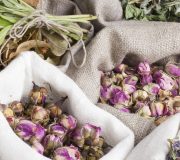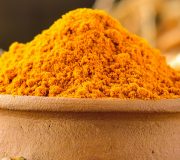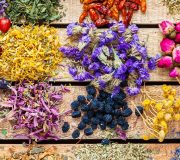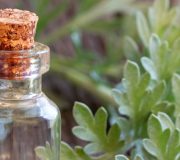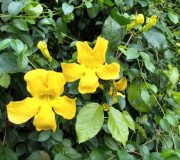About this Episode
Medicinal herbs work in the human body to impact physiological processes through a variety of actions. One herb may act in many different ways, influence multiple body processes. In this podcast episode, Professor Kerry Bone joins host Sara Le Brun Blashka, MS, to describe how medicinal herbs specifically involved in immune health can be categorized and understood.
Three Types of Immune Herbs
Kerry organizes immune herbs into three main categories (01:39):
- Tonics
- Enhancers
- Stimulators
Tonic immune herbs are associated with boosting immunity when it is low, deficient, or depleted due to chronic illness, stress, exhaustion, or other reasons. Enhancers, also known as “modulators,” may be used when a healthy individual is looking for extra help to treat or prevent infection. These herbs may also support balance in the immune system in the context of autoimmune conditions. Stimulators provide a non-specific “revving up” of the immune response, and they should be used with care. Lastly, Kerry describes a potential fourth category of immune herbs: suppressors.
Tonic Immune Herbs
Immune depletion, indicating a potential need for tonic herbs, may show up on a blood test, such as reduced white blood cell count (06:19). Key tonic immune herbs include:
- Astragalus
- Ashwagandha
- Tinospora
- Other tonic and adaptogenic herbs
Immune-Enhancing Herbs
Kerry describes enhancers as only acting as much as they are needed. These include:
- Echinacea root
- Andrographis
- Tulsi (Holy Basil)
- Medicinal mushrooms
Immune-Stimulating Herbs
Herbs that stimulate the immune system include pokeroot, and they should be used sparingly and cautiously as some are toxic in high doses.
Clinical Applications for Herbs and the Immune System (12:47)
As their categorization suggests, immune herbs can be utilized for a variety of reasons involving immune support. Generally healthy people with concerns about seasonally circulating infections may look to immune herbs for extra immune protection. An understanding of how these herbs work also provides a protocol for when infections do arise, especially for individuals who are prone to sickness. Also important is the impact of herbs on the innate versus the adaptive immune response (19:18), as well as the potential impact of herbs on the Th1/Th2 immune balance (26:14).








